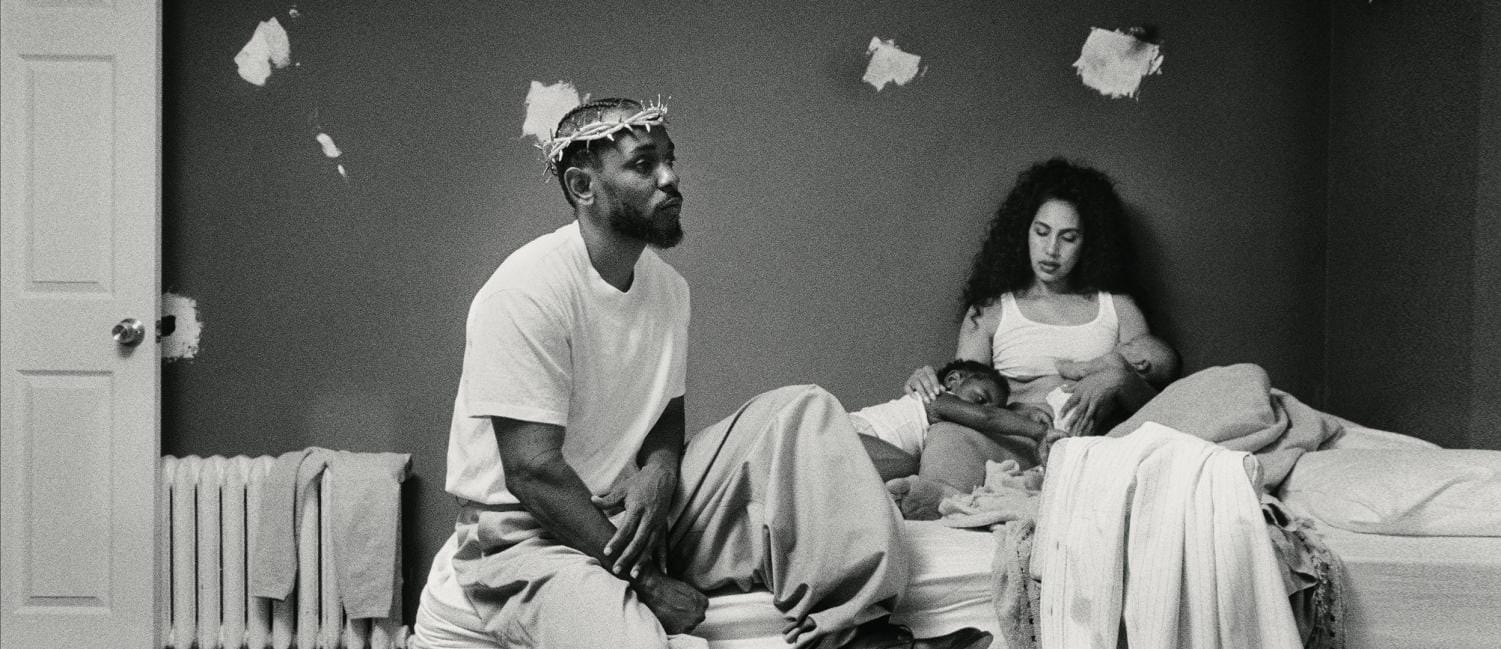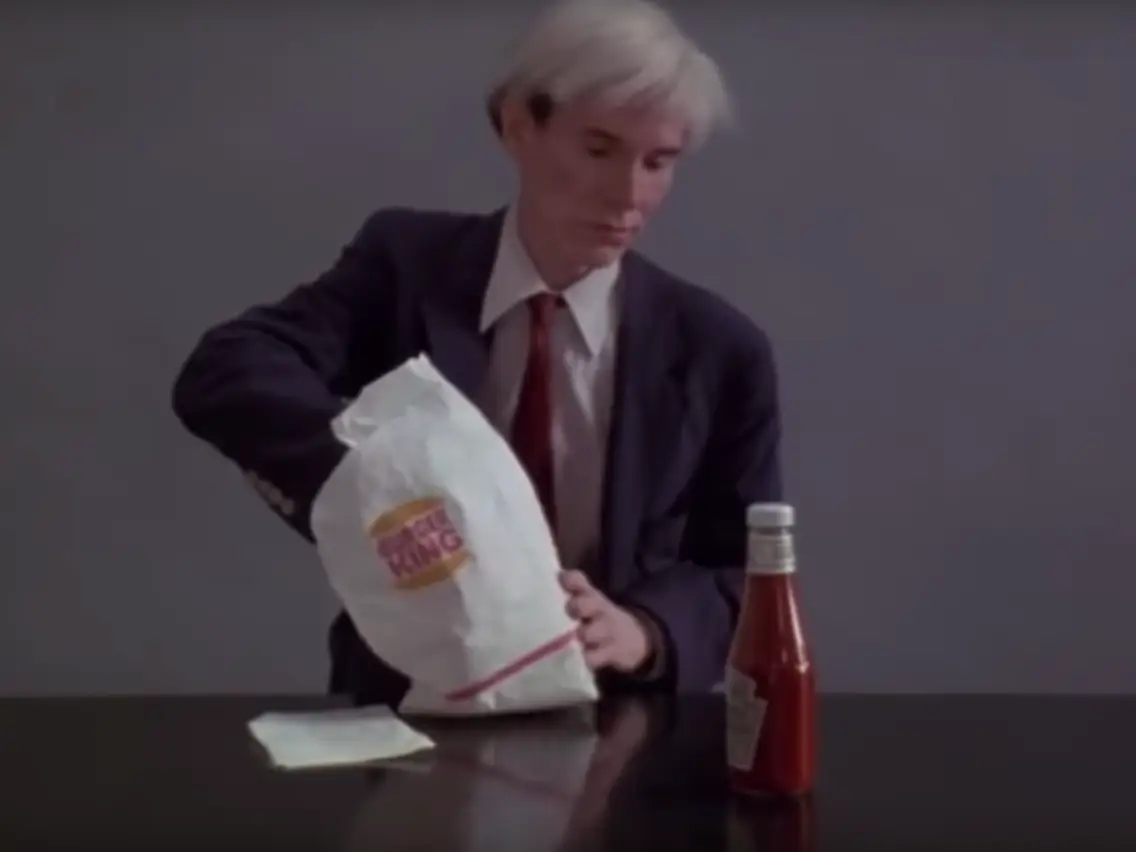Here Comes the Hotstepper
I choose me.

Noah Baumbach’s Kicking and Screaming remains a touchstone even after a pandemic rewatch when I hated every character. The exchange that stuck with me last time around is when Skippy blows up on the boys after their trivia game creates hurt feelings. It was the nineties and young men still thought it was novel to rank every Freddy and Jason movie in the same breath as analyzing Cormac McCarthy. During an argument Skippy calls his friends “media slaves.” He doesn’t say “art” or “culture” or “film,” and in this charged diction lies Baumbach’s bias: he’s on Skippy’s side. These aimless bros are beholden to media, not larger ideas about culture or art, just consumption. I don’t intend to engage in any ideas about high- vs low- vs middle-brow, but someone fucking up and accidentally releasing art in the age of endless scroll feels increasingly rarer. So much energy is wasted on analyzing “media” like it’s “art” that there’s a class of thinkers who think they’re doing something by writing “funny” reviews on Letterboxd. This is where thought goes to die. (Not specifically on Letterboxd, but it’s the most visible display of a deeper dysfunction.) The “where” is millennial faux-sincerity meets the emotionality of social media meets the banality of streaming. Being “too cool” but feeling uncool and doing something deeply uncool but pretending it’s cool. We’re watching Girls and in season two, when Hannah lands her ill-fated book deal and meets with her publisher, he says, “What we do isn’t high-low. High-low is Tom Wolfe writing about his colostomy bag. We do low-high. Low-high is someone no one’s heard of writing about her lost generation.” Media is about commerce. Culture is YoungBoy’s reign as the most popular rapper on streaming and for lack of a better term the streets with no coverage to match. Invite YoungBoy to the Met Gala. I’m not about to say Kendrick defied the odds and dropped real art with his new album, don’t worry.

The biggest red herring in Kendrick’s discography is the cover of To Pimp a Butterfly. You can google his comments about Michael Brown or voting or BLM, but the immediate power of that cover aspires to a political tinge I’m not sure Kendrick ever expressed or intended to express. I never looked to Kendrick for political or social commentary—what made him special to me was the way he bridged generations of west coast street rap with for lack of a better word conscious rap and made songs that were catchy enough for radio and hard enough for rap fans. He was on his Campbellian hero’s journey, and he didn’t scare the hoes. I always respond to these two things.
I don’t like “The Heart Part 5,” the video or the song. It’s a sample-flex with a concept that doesn’t stretch beyond “celebrities.” I don’t like Kendrick in this mode—the “Control” zeitgeist-grabbing stunt felt effortful, and in these songs, when he’s trying for an impact beyond telling stories he loses me. My favorite Kendrick song is probably still “Momma” where he sings, “you ain’t gotta lie to kick it/you ain’t gotta try so hard.”
What makes Mr. Morale so confounding at first are the lengths he goes to explicitly reject both the “voice of a generation” savior complex and his man-of-the-people isms. Why is someone as critically adored as Kendrick complaining about cancel culture? My first few listens were unpleasant, and there were lines that made me scrunch up my face: “I could never live my life on a computer,” “what the fuck is cancel culture dog?,” “politically correct is how you keep an opinion,” “they like when I’m pro-Black/but I’m more Kodak Black” (more on this in a second). A lot of the album is outwardly vitriolic in many directions: to the passive listener, to longtime fans, to critics, to those who would rightfully take him to task for complaining about cancel culture, to people who don’t want to hear the f-slur ten times in a row, etc. The second verse on “Sing About Me, I’m Dying of Thirst” from good kid, maad city is a rebuttal of “Keisha’s Song” from Section.80, a piece of meta-criticism where Kendrick owned up to his gender-based blind spots on a song that tried to walk in “Brenda’s Got a Baby’s” shoes. Is Kendrick even capable of reflecting like this anymore? Is the urge that allowed him to gracefully explore grief and unexamined misogyny in 2012 something he would consider now? I don’t like that song because it’s altruistic, I like it because it demonstrates a good artist’s instincts towards reflection. I thought he was a more original thinker than one to get caught up by the cancel culture boogeyman.
There are so many things in the world that are awful, and a Pulitzer-winning musician careening into a heel turn on the basis of “everyone’s too sensitive” is an ugly piece of the mosaic. I don’t know why you would choose this as your mark after five years. But I do believe Kendrick is a good artist, and when he raps, “I am not your savior” and “I can’t please everybody” and “I choose me, I’m sorry” on this record, I can only take him at his word. As a listener I think, “parts of this album are full of shit and his concerns are out of touch.” Young Thug and Gunna are in jail right now. Kendrick has walked in ivory tower hallways I will never see, and he asks, “are you happy for me?” He sat out the Trump presidency and came back to wonder aloud if R. Kelly “failed” because he was sexually assaulted as a child. I acknowledge the gumption it takes to have this platform and literally say to everyone, every critic, every fan, everyone that loves you, “I choose me.” It’s authentic, if flimsy. It’s a calculated risk.
The easy thing to do as an A-list artist would be to not platform Kodak Black, an artist whose music I’ve enjoyed a lot even as he’s plead guilty (several times) in a battery and sexual assault case. But Kendrick has positioned him on the album as a foil to his own moral journey that gives him space to be himself as an artist and also lend real stakes to his ideas about who is and isn’t allowed to participate in culture. There is an element of rehabilitation in Kodak’s presence on the album, which is more substantial than directionless whining or a weaponizing of his guest appearances. It’s cynical, but it’s also cognizant that for lack of a better term the industry already props up all of these people. You can hear “Super Gremlin” on the radio right now, probably five times in an hour.
Kendrick’s lobbying of Spotify to put R. Kelly and XXXTentacion back on promoted playlists is more morally suspect than anything he says on Mr. Morale. This is a conundrum when we are inundated by free media. Curation and physical scarcity meant we could frame our views on ethical issues directly, and be active participants in what we supported or did not support. Now media is everywhere, propped up by huge corporations, and these ethical choices are a hurdle in living with a clear conscience. I wouldn't have to think about this in times past, unless he vocalized his support of these artists in an interview directly. It’s impossible to talk about free speech or consequences without having to account for tantrums thrown by millionaires. There are messy, unfinished thoughts on this album about COVID, free speech, misogyny, queer and trans rights, generational trauma, and politics. Music has the power to hurt people, and it’s important to speak up when it does. Relentlessly “playing the game” is a lose-lose situation. This is what Kendrick has accomplished with his album: by cramming so many misdirections into one work Kendrick has taken himself out of the game.
Kendrick and his team have brought everything to this exhaustive album that underlines it’s supposed to be music first, through its many undeniable moments: the ecstatic free-associating on “Count Me Out,” the sublime love letter “Purple Hearts,” “We Cry Together” as a piece of drama, the entirety of “Silent Hill” and "Rich Spirit," the beat drop on “N95,” the brooding “Mr. Morale,” Sampha on early breakthrough “Father Time.” The songs aren’t suffocated under “elevated” jazz or chintzy attempts at trap. He shrewdly frames the album as a therapy session, which buys the space to let his thoughts out in an imperfect way. Kendrick has the ability to spurn an audience that viewed his perceived “wisdom” in an unearned and problematic light, and it’s thrilling to listen to him set those expectations on fire. If the next album is all anti-vax bars or “Republicans have a point” raps I’m kicking it into the recycle bin. But I’ve grown to enjoy this album, and I’ve enjoyed the things it has made me think about.
